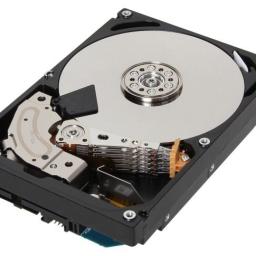Toshiba Announces a 5TB Hard Drive
 Anandtech is running an article about a spacious new 5TB enterprise HDD from Toshiba. 3.5 inch, 7200 RPM, 128 MiB, either SATA or SAS 6Gb/s.
Anandtech is running an article about a spacious new 5TB enterprise HDD from Toshiba. 3.5 inch, 7200 RPM, 128 MiB, either SATA or SAS 6Gb/s. Anandtech is running an article about a spacious new 5TB enterprise HDD from Toshiba. 3.5 inch, 7200 RPM, 128 MiB, either SATA or SAS 6Gb/s.
Anandtech is running an article about a spacious new 5TB enterprise HDD from Toshiba. 3.5 inch, 7200 RPM, 128 MiB, either SATA or SAS 6Gb/s.| Reply | 23 comments |